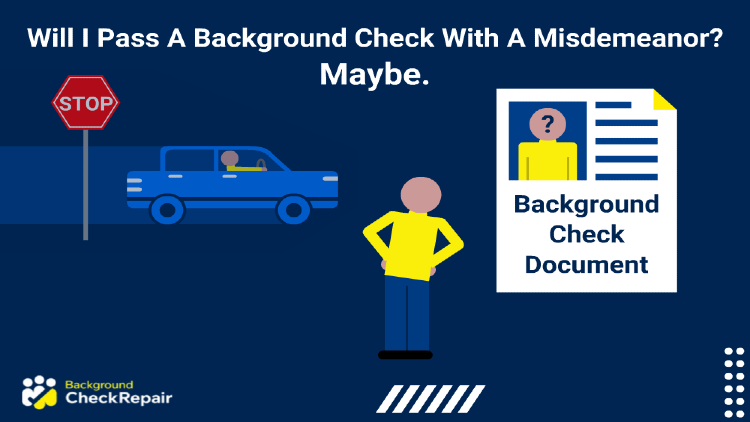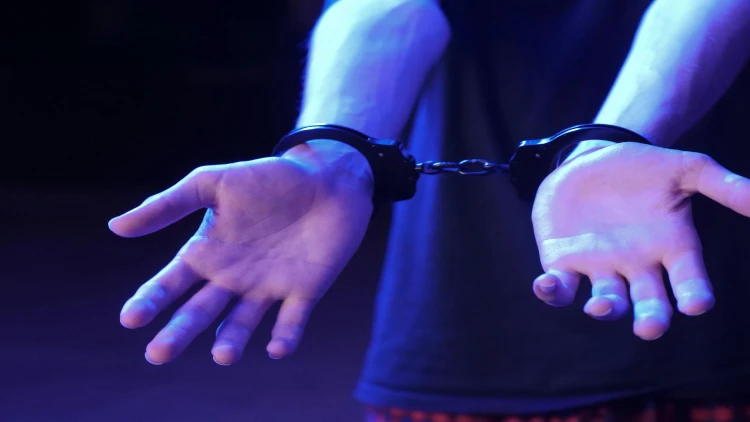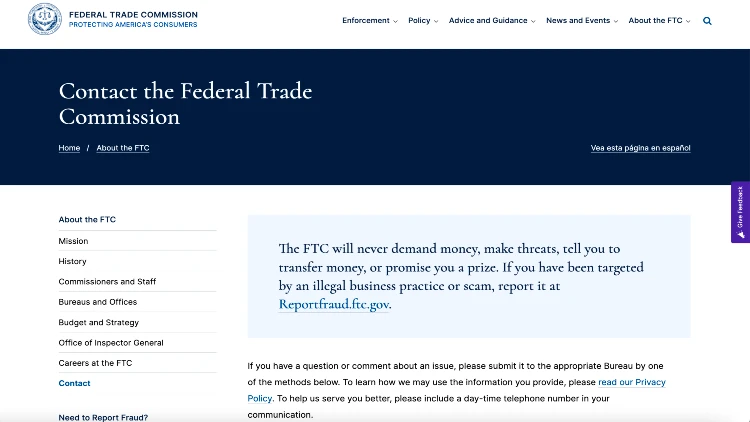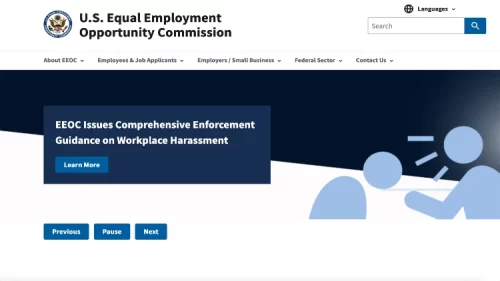We use cookies to ensure that we give you the best experience on our website. If you continue to use this site we will assume that you are happy with it
Will I Pass a Background Check With a Misdemeanor? Maybe.
 Written by Background Check Repair
Written by Background Check Repair
Background Checks | May 30, 2024

Table of Contents
When applying for a new job, apartment, or other opportunity, you may wonder, ‘Will I pass a background check with a misdemeanor?’ It is often stressful and confusing when applying for opportunities with a criminal history. Background checks will inevitably increase this anxiety.
However, there is not one clear answer to this question, and it may differ depending on where you live, why the check is being conducted, and when you committed the infraction.
When seeking new opportunities, a background check is often required to verify your identity and ensure your record is clean. However, even offenses as minor as misdemeanors can sometimes jeopardize your ability to pass and obtain a new volunteer position or job.
In fact, there’s a variety of background screenings that reveal varying levels of information on your record. It is important to understand what each type of check divulges, so you understand which checks you can and cannot pass, especially if you have offenses on your record.
It would be in your best interest to reveal any criminal history with an employer before they conduct any screening, to avoid any surprises and demonstrate your honesty.
Ultimately, when asking “Will I pass a background check with a misdemeanor?” the answer is typically maybe. The following article will help you determine when the answer is “yes,” and when the answer is unfortunately “no.”
What Is a Misdemeanor?
According to Cornell Law School, a misdemeanor is a type of offense typically punishable by less than a year in jail. Other times, it requires community service or paying a fine. For example, in Washington DC, petty theft of property less than $1,000 will result in a fine of $1,000. Stalking, on the other hand, carries a fine of up to $2,500 [1]. If you have a record, it is important to know what your offense is classified as, so that you know your rights and how it will impact your future, depending on your state jurisdiction.

(Image: Kindel Media6)
A misdemeanor is distinct from a felony, in that it involves a less severe crime. Wikipedia defines it as a “lesser” crime, as the act itself and the punishment are less serious. Depending on the state, some examples include public intoxication, minor assaults, possession of drugs or a controlled substance, petty theft, vandalism, and related offenses. After committing multiple misdemeanors, the same repeat offense may be treated as a felony, which will have a much larger detriment on your future employment and ability to pass a background check.1
Which Misdemeanors Will Show Up on My Criminal Record?
When asking yourself, ‘Will I pass a background check with a misdemeanor,’ understand that not every misdemeanor is treated equally. In fact, certain offenses may be more severe in one state than another. The type of offense on your record may also impact whether or not you pass your criminal background check.
For instance, some misdemeanors would disqualify applicants for certain positions. More specifically, possession of drugs in a decriminalized state may prevent you from working in a health setting. Similarly, a speeding ticket would prevent you from applying for a truck driver or other special transportation licensing. In some states, certain traffic violations are considered misdemeanors.2
Furthermore, certain positions may require a more intense background check, which may be more likely to reveal a criminal past. For instance, jobs or volunteer positions that require working with children, the elderly, or other vulnerable populations, may require an FBI fingerprint check. These checks will reveal arrests, offenses, and other related criminal activity.
Typically, a more thorough background investigation is conducted to help your potential employer ensure you are able to hold a position of responsibility or trust. They are also used to help the person running the background check avoid legal liability, preventing people who might be a threat to vulnerable populations, based on their criminal background.
Misdemeanors that involve violent action, disorderly conduct, or other actions that may threaten vulnerable populations may also bar you from opportunities such as teaching or working in a daycare.
Are There Different Levels of Misdemeanors? Does a Misdemeanor Differ Per State?
Yes, there are different levels of misdemeanors depending on the state or jurisdiction. In fact, many states group these offenses into levels based on their severity. For instance, states may label Class A and B, or Level 1 and 2, and so on, to rank the gravity of the misdemeanor. This classification helps determine what punishment fits the crime and is also helpful guidance for an employer or other party conducting a background check.

(Image: Kindel Media7)
As mentioned, misdemeanors carry weight in different occupations, and even states. While some offenses may be considered mere infractions in certain states, they could be misdemeanors in others.
For instance, in Florida, you cannot purchase a firearm if you have a record that involves an offense like domestic violence. In Florida, as well as other states that have a Level 2 check, all felonies and misdemeanors may be revealed in this type of background check.
In Washington DC, healthcare facilities are allowed to employ individuals who have been convicted of a misdemeanor, provided it is only one offense. However, it must not involve abuse, violence, or related matters.3
Florida and Washington DC are only two examples. Please research your state to learn more about your respective rights and the applicable laws.
What Type of Background Checks Are There?
There are many types of background checks. Some may consist of formal checks conducted by a third party, while others may include a social media check, credit report, an online search, and court records. It may be helpful to know the process of obtaining a background check on yourself beforehand, to see what it reveals and confirm that all the information is accurate.
Research the type of check common in your state, since a background check will impact your ability to obtain employment.
Level 1 and Level 2 are common formal background checks. A Level 1 background check is less intense and typically searches for criminal records on the local, city, or state level. These are the standard for most checks and are usually completed for jobs that do not involve highly sensitive information or vulnerable populations. They are typically done so that potential employers are able to protect their organization from liabilities, comply with applicable local or state regulations, and foster a safe work environment for its employees as well as the public. Furthermore, Level 1 checks also confirm that potential employees are who they say they are.
A Level 2 background check is more intense and invasive. This type of background check typically involves submitting your fingerprints and searching national criminal databases, such as the FBI. More specifically, a Level 2 background check reveals misdemeanor or felony convictions, sex offenses, any pending criminal charges or court cases, arrests in other states, and judgments in civil court cases.
A criminal background check may reveal a criminal past from as far back as 5 to 10 years, or even indefinitely, depending on the state. It is important to research what the applicable state laws are concerning your criminal record so that you are aware of how long it may impact your life and the opportunities available to you.
How Will I Know Why I Failed the Background Check and What Can I Do To Fix a Bad Background Check?
According to the Federal Trade Commission, a potential employer is legally obligated to tell you if you didn’t get hired due to your criminal history.4 Furthermore, a potential employer must also ask permission or notify you that they are conducting a background check to verify your identity or record.

(Image: Federal Trade Commission8)
If your employer (or other professional) fails to seek permission, or rejects you due to your criminal record without officially notifying you, you must contact the Federal Trade Commission, to understand your legal rights in the matter and report the individual. There are also other solutions, as well. You can contact many civil rights attorneys (or a firm) for free, to learn more about your rights regarding a failed history search or to get answers about county laws. Moreover, the Fair Credit Reporting Act (FCRA) protects your information and prevents discrimination based on your credit history, or employment or tenant applications.
If you fail a background check, you should not give up on seeking future job opportunities. But first, you must determine and fully understand why exactly you failed the background check.
Sometimes, the database used for a background check may be incorrect or outdated. For example, these databases may still include information on a crime that was later expunged. They may label an offense as a felony, even if it was later downgraded to a lesser crime, or can even suffer from human entry errors.5 Therefore, it is important to be aware of what the information says about you, so that you may correct it and prove it is false.
To repair false or inaccurate data about your criminal history, contact the online resource or jurisdiction that has posted the outdated record. If you get your records expunged, you should keep proof of this change to verify your updated criminal record. Having this proof handy may be helpful when applying for a new job.
What Are My Rights? Do I Have a Defense Against a Criminal Background Check?
Even if you have a criminal history, you still have rights, especially when applying for a job. An employer must ask for your permission before conducting a background check. While you legally may deny this request, the potential employer can still reject your application due to a lack of information about your identity.4
If a crime revealed in the background check is the reason you are not hired or promoted, your employer must send you the background check report.
In addition to this, they must also send a supporting document known as a “Summary of Rights” for your records. This summary provides you with the information found by the third party who conducted the check. It also provides information on how to contact them, in case their search revealed inaccurate information.4

(Image: U.S. Equal Employment Opportunity Commission9)
If you think that you failed a background check due to discrimination, rather than your misdemeanor, you can file a claim with the US Equal Employment Opportunity Commission. It is crucial to know your rights before, during, and after a background check.
Can I Pursue Expungement? Will This Help Me Get a Job?
Yes, in most states, you can get a misdemeanor “expunged.” This means that your misdemeanor offense is legally erased from your record, after a certain amount of time. However, you often must take action to expunge your misdemeanor. Research the process for expunging records in the state where you were convicted of the crime, and follow the instructions provided. In some cases, depending on the circumstances of the offense as well as the state it occurred, it may be wise to seek legal advice.
If a court eventually grants your request and absolves your record, your misdemeanor can no longer be used as legal grounds to deny you an employment position or other opportunity. This is why it is important to always obtain the “Summary of Rights” from a potential employer or anyone else conducting a background check so that you can ensure that applicable databases are up to date on your criminal record. Expungement may be key for many individuals with misdemeanors who are seeking a new job.
If you’re worried about passing a background check and are asking ‘Will I pass a background check with a misdemeanor,’ remember that you have options. While your record can jeopardize a background check screening and a potential job, it is not certain.
Be prepared to explain the circumstances of your misdemeanor to your potential employer, or whoever is running a background check or screening on you. More specifically, you should be prepared to explain why this offense does not prevent you from performing well on the job and being approved.
If you’re applying for a new job, apartment, or other opportunity, and still wondering, ‘Will I pass a background check with a misdemeanor?’… the answer is maybe, but now you know how to find out exactly whether it will be yes…. or no.
References
1Gjelten, E.A. District of Columbia Misdemeanor Crimes and Sentences. 2021 Criminal Defense Lawyer. 16 October 2021. Web. <https://www.criminaldefenselawyer.com/resources/district-columbia-misdemeanor-crimes-class-and-sentences.html.>
2United States Department of Justice. What Happens in a Misdemeanor Case. The United States Attorney Office Northern District of Illinois. 24 July 2015. 16 October 2021. Web. <https://www.justice.gov/usao-ndil/programs/vwa-misdemeanor>
3DC Health. 2021 District of Columbia Municipal Regulations. 16 October 2021. Web. <https://dchealth.dc.gov/sites/default/files/dc/sites/doh/publication/attachments/Health_%20Care_%20Facility_%20Unlicensed_%20Personnel_%20Criminal_%20Background_%20Checks_0.pdf>
4Federal Trade Commission. Background Checks. March 2018. 16 October 2021. Web. <https://www.consumer.ftc.gov/articles/0157-background-checks>
5US Equal Employment Opportunity Commission. Enforcement Guidance on the Consideration of Arrest and Conviction Records in Employment Decisions under Title VII of the Civil Rights Act. 25 April 2012. 16 October 2021.Web. <https://www.eeoc.gov/laws/guidance/enforcement-guidance-consideration-arrest-and-conviction-records-employment-decisions>
6Photo by Kindel Media. Cropped, Resized, Changed Format. Pexels. Retrieved May 29, 2024, from <https://www.pexels.com/photo/light-man-love-people-7773263/>
7Photo by Kindel Media. Cropped, Resized, Changed Format. Pexels. Retrieved May 29, 2024, from <https://www.pexels.com/photo/man-in-black-crew-neck-t-shirt-covering-his-face-with-his-hand-7773265/>
8“Contact the Federal Trade Commission.” Federal Trade Commission, 28 Feb. 2013. Retrieved May 29, 2024, from <https://www.ftc.gov/about-ftc/contact>
9EEOC. “U.S. Equal Employment Opportunity Commission.” U.S. Equal Employment Opportunity Commission, 2019. Retrieved May 29, 2024, from <https://www.eeoc.gov/>
